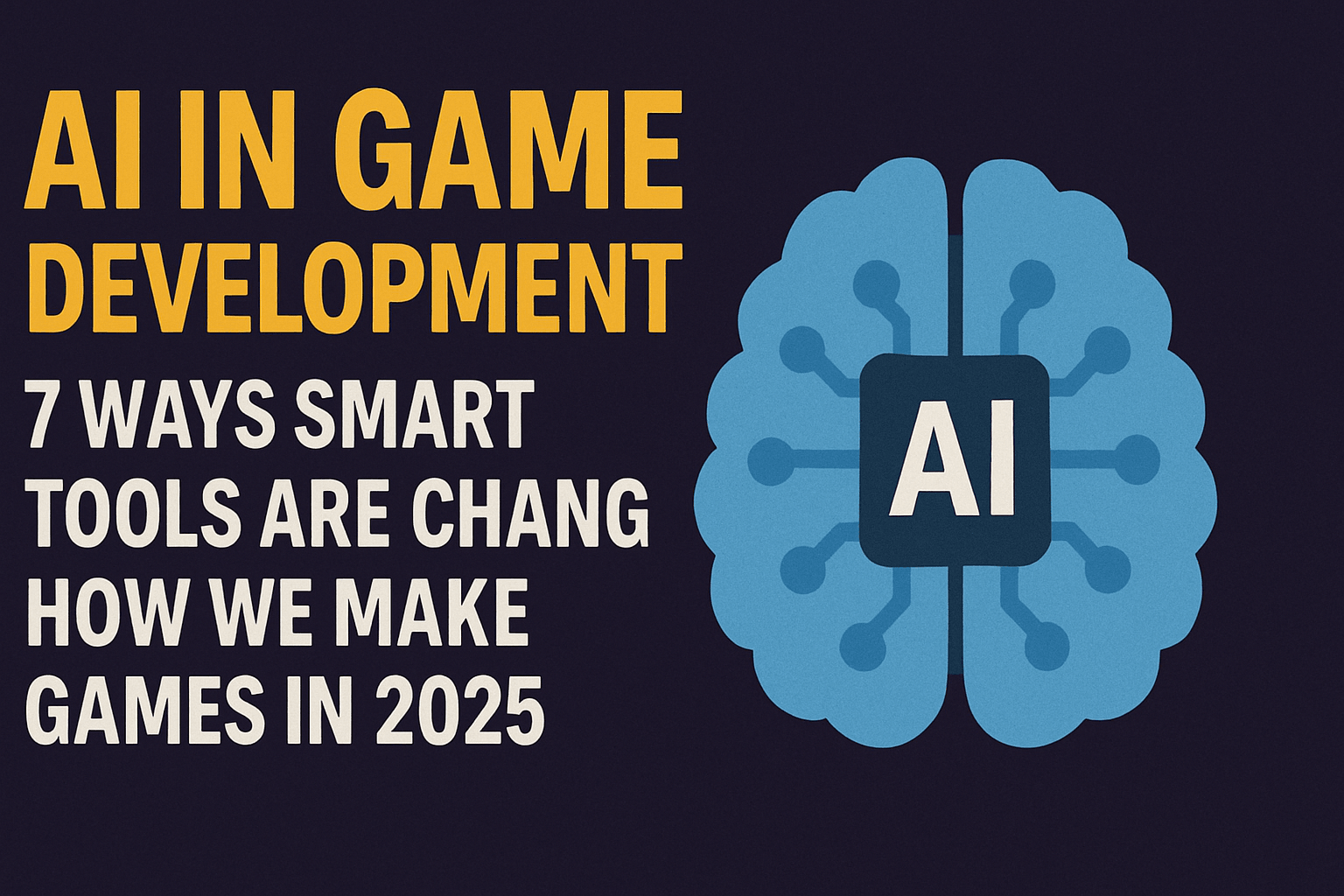
Game development in 2025 isn’t just about code, art, or design anymore — it’s about co-creating with AI. From helping solo devs build games faster to revolutionizing NPC behavior and level design, AI tools are changing the way we develop games forever.
In this post, we’ll explore 7 powerful ways AI is reshaping game development — with tools, real examples, and tips you can use right now.
🤖 1. Writing Smarter Dialogues with AI
Tools like ChatGPT and Sudowrite are helping developers write branching dialogue, lore, and even quest descriptions in minutes — not days.
Example: Use ChatGPT to write character dialogue based on tone and backstory prompts, then tweak it manually for polish.
🔧 Tools:
- ChatGPT
- NovelAI
- Sudowrite
🎨 2. AI-Generated Game Art & Textures
Creating 2D or concept art has become easier with tools like Leonardo AI and Karlo, where you can generate game-ready assets or prototype ideas visually using just prompts.
Example: “Cute pixel-art wizard holding a staff, 32x32 format” — and boom, usable sprites.
🔧 Tools:
- Leonardo.Ai
- Karlo
- Piskel + AI assist plugins
🧠 3. AI NPCs That Actually Talk and Think
Thanks to Inworld AI and Convai, NPCs can now hold real-time conversations, remember your actions, and behave like real characters — powered by language models.
Example: Your merchant NPC remembers your past interactions and adjusts dialogue or pricing accordingly.
🔧 Tools:
- Inworld AI
- Convai
🛠️ 4. AI Code Generation & Debugging
Need a movement script or inventory system in Unity or Unreal? AI can now help generate, optimize, or even explain your code — saving hours of searching forums.
Example: Ask ChatGPT to write a Unity script for head bobbing — with comments and explanation.
🔧 Tools:
- GitHub Copilot
- ChatGPT Code Interpreter (Pro)
- Replit Ghostwriter
🌍 5. Procedural World & Level Generation
AI-assisted procedural generation now includes terrain, dungeons, and entire open worlds, thanks to tools that combine rule-based systems with machine learning.
Example: AI-generated dungeons that adapt to player behavior (e.g., more traps if you always avoid combat).
🔧 Tools:
- Promethean AI
- LevelBuddy (Unity)
- [Terrain Generator AI Tools (Unreal/Unity plugins)]
🧩 6. Game Design & Balancing Insights
AI can simulate thousands of game loops and help balance gameplay by analyzing what’s too easy, too hard, or too boring.
Example: AI playtests your game 500 times to test level completion time, damage balance, and enemy placement.
🔧 Tools:
- Ludo.ai
- Custom reinforcement learning models
- Unity ML Agents Toolkit
📣 7. AI-Driven Marketing & Game Descriptions
Yes, AI can even help with marketing — from writing Play Store descriptions to generating trailers or thumbnail ideas based on your game content.
Example: ChatGPT writes a catchy Steam description or SEO-optimized blog post (just like this one 😉).
🔧 Tools:
- ChatGPT
- Canva AI tools
- Synthesia for AI trailer voices
💡 Final Thoughts
In 2025, AI isn't replacing game developers — it’s empowering us. Whether you're a solo dev, a small team, or a large studio, AI tools are helping save time, boost creativity, and bring ideas to life faster.
Your next great game might just be a prompt away.
